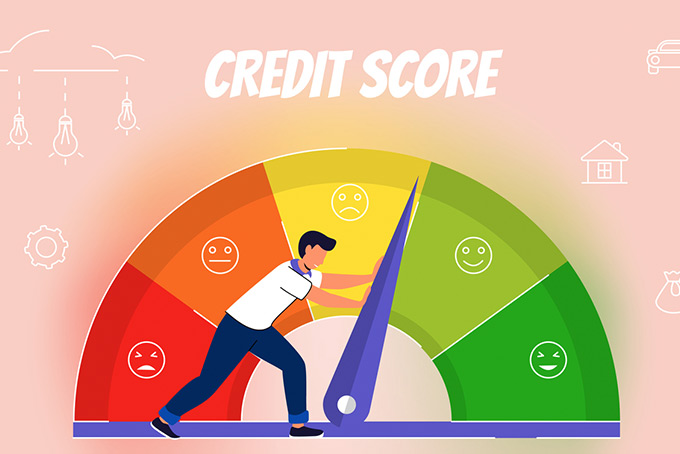
A credit score is a number that helps lenders predict how likely you are to repay a loan on time. Banks and other lenders look to your credit score to decide whether to lend you money – be it a mortgage, a line of credit, a credit card, or some other form of loan. Your score also determines both your interest rate on that loan (or credit card) and your credit limit.
Your score might look like a simple 3-digit number, but it carries huge implications. Read on for details.
What Is a Credit Scoring System?
FICO and VantageScore are the most widely known credit scoring systems, with FICO clearly in the lead. They compile data about consumers from the three major credit reporting bureaus (TransUnion, Equifax, and Experian) to indicate where a potential borrower falls on the “creditworthiness” scale of 300 to 850.
But what do these numbers really mean? In a nutshell: The higher your score, the lower the risk you pose to a potential lender.
- FICO:
“Exceptional” = anything over 800
“Very good” = 720 to 799
“Good” = 690 to 719
“Fair” = 630 to 689
“Bad” = anything under 630
In 2021, the average FICO credit score was 716, meaning that the average borrower was in the “Good” range.
- VantageScore:
Superprime = anything above 780
“Prime” = 661 to 780
“Near prime” = 601 to 660
“Subprime” = anything below 600
In 2021, the average VantageScore was 693, placing the average borrower in the “Prime” tier.

How Do FICO and VantageScore Determine My Score?
Your credit score is made up of several components. The two that influence your score the most are payment history (Do you pay on time?) and credit utilization (How much of your credit limit is being used?). Of lesser importance but still considered are your length of credit history, the types of credit you use, and how frequently you apply for credit.
How Do I Know What My Score Is?
You are entitled to a free copy of your credit report from each credit bureau once a year at AnnualCreditReport.com. (You’re also allowed to request a report within 60 days of a denial of credit, if you noted inaccuracies, if you are on welfare, or if you are unemployed.) While these reports don’t provide your actual score, you can use these reports to gauge your creditworthiness because this is the same information used to calculate your credit score. That’s why an annual review of your credit reports is very important to ensure that there are no inconsistencies or inaccuracies.
To find out your actual credit score, you might need to shell out some money. First check with your bank – many financial institutions now provide customers with their credit scores free of charge. You might be able to access your score from a free credit scoring site or credit score service, although some of these operate on a monthly subscription basis. As a last resort, you can always pay one of the credit bureaus to run your report.
Why Does My Credit Score Matter?
Having a strong score is important on several levels. If you’re planning to apply for a loan or a credit card, your score is a deciding factor in whether or not a bank will accept your application. Once you’ve been approved, your score determines your interest rate.
Even if you aren’t looking to borrow or open a new card, a good credit score will benefit you in other ways. With a higher credit score, depending on your state of residence, you can often pay lower car insurance. If you’re looking to rent a home, keep in mind that your potential landlord might access your credit score to screen you before accepting you as a new tenant.
What Do High Scorers Have in Common?
FICO has noticed that people with ultra-high credit scores (800+) share a few key attributes:
- They pay their bills on time, so that they don’t incur late payments.
- They use credit sparingly, under 10% of their credit limit.
- They don’t carry huge credit card debt, often less than $3,500.
- They have a long credit history, typically around 25 years.
- They don’t open new accounts often, meaning they stick with the accounts they have.
While it might be difficult to emulate all the attributes of the high scorers, make good credit habits part of your financial routine. It might take some effort to adjust your mindset, but consistent practice will soon get you into a rhythm. If you’re struggling or have questions on establishing a better credit score, contact American Credit Foundation to connect with a friendly financial counselor.